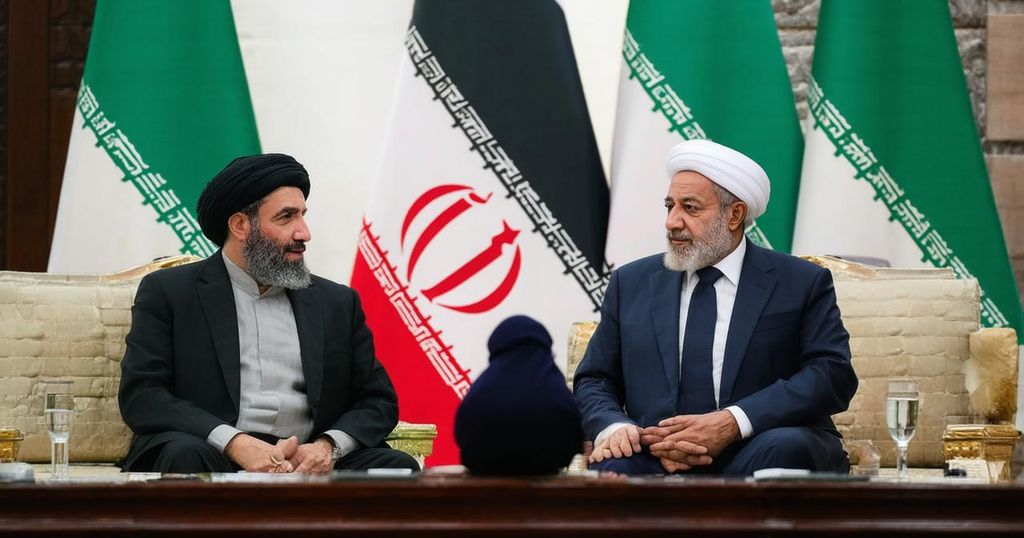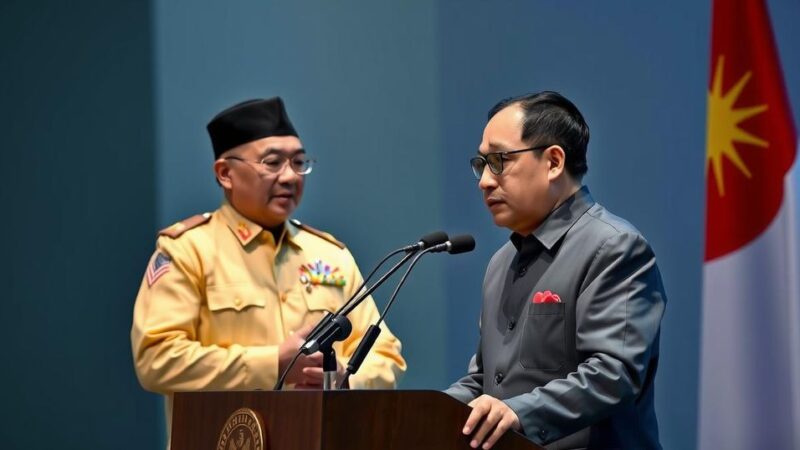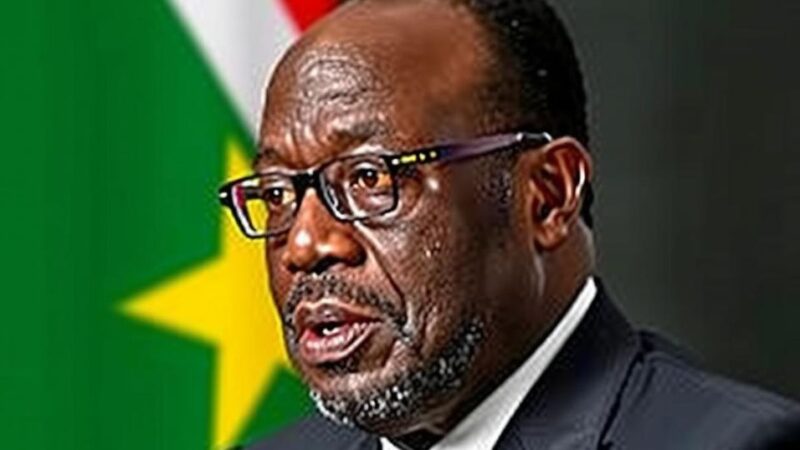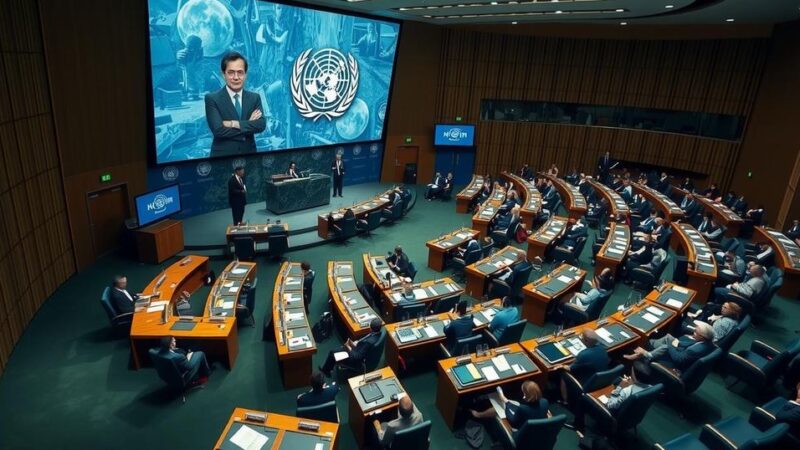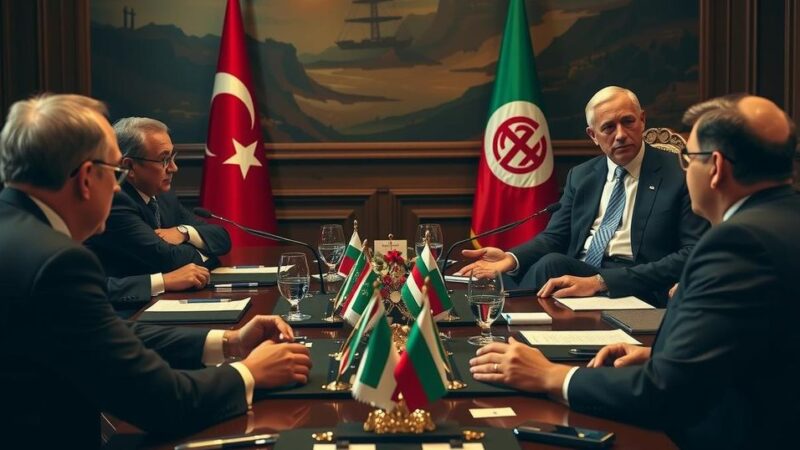The growing tensions in the Middle East have prompted Washington’s Arab allies to enhance their engagements with Iran, reflecting dissatisfaction with US policies aimed at de-escalating conflicts. Recent diplomatic initiatives indicate a shift toward neutrality among Gulf nations, as they seek to navigate a precarious situation marked by Israel’s military actions and Iranian responses. This reorientation is intertwined with the need for economic stability, as countries like Saudi Arabia and the UAE aim to reinforce their diplomatic and security strategies amidst shifting US involvement.
Washington’s Arab allies are increasingly engaging with Iran due to concerns over the United States’ failure to mitigate escalating tensions in the Middle East. In recent months, Arab nations have pursued improved relations with Iran as a strategy to prevent a broader regional conflict, which the US has struggled to contain. On a recent diplomatic mission, US Secretary of State Antony Blinken visited Israel for the eleventh time this year, aiming to leverage the recent killing of Hamas leader Yahya Sinwar in pursuit of a ceasefire in Gaza. Nevertheless, US officials tempered expectations, noting that calls for calm were largely ignored by both Israel, which remains determined to proceed with its military operations in Gaza and Lebanon, and Iran, which has reacted to Israel’s military actions with significant missile attacks. Historically, Arab nations have exhibited wariness toward Shiite Iran’s influence within a landscape dominated by Sunni allies of the US. Recently, however, Tehran has actively sought to gauge Arab nations’ positions amidst its ongoing conflict with Israel, dispatching high-ranking officials for discussions with multiple Arab leaders. This engagement offers a shift from decades of hostility, with countries like Saudi Arabia re-establishing dialogues. The engagements included a significant meeting between Saudi Crown Prince Mohamed bin Salman and Iranian diplomats, underscoring a thaw in relations. Iran’s foreign minister has also reached out to leaders in Jordan, Egypt, Qatar, Oman, and Bahrain, contributing to assurances that these nations will not facilitate attacks against Iran. Despite their initial misgivings regarding Iran’s regional ambitions, Arab states now appear inclined towards neutrality, with the United Arab Emirates (UAE) explicitly stating that its airspace would not be used for any strikes against Iran. Analysts highlight that Gulf monarchies aspire to avoid entanglement in broader regional conflicts due to fears of potential reprisals. Despite the weakening of groups like Hezbollah and Hamas, concerns persist regarding the volatile situation created by Israel’s military actions and its unclear strategic objectives. Arab states are anxious about the outcomes of escalated conflict in their vicinity. In response, the United States has consistently sought to negotiate ceasefires and mediate regional tensions but has had limited success. Gulf nations, particularly Saudi Arabia and the UAE, have been reevaluating their foreign policies, leaning toward diplomatic engagement rather than conflict to safeguard economic interests. As the geopolitical landscape continues to evolve, there is a pressing need for a more assertive US role, as articulated by Emirati officials, amid growing skepticism regarding America’s protective assurances. Both Saudi Arabia and the UAE are seeking formalized security arrangements with the US while striving to reinforce their military partnerships despite shifting sentiments within the region. Ultimately, Gulf states’ lack of confidence in the US to adequately address threats from Iran reflects a broader reassessment of their security strategies in a rapidly changing environment.
The Arab states’ renewed interest in interacting with Iran is largely a reaction to the observed ineffectiveness of US policy in the Middle East, particularly regarding rising tensions and violent conflicts. Following Hamas’ recent actions and Israel’s counter-strikes, a strategic recalibration among these nations has emerged. Historically adversarial relationships are undergoing changes as regional actors confront the reality of potential wider warfare, prompting a desire to forge dialogues that may mitigate threats. The US’s ongoing attempts to mediate situation complexities have not yielded satisfactory results, leading these nations to seek a course of neutrality as a means of self-protection and stabilization.
The increased diplomatic engagements by Arab states with Iran signify a pivotal shift against the backdrop of ineffective US intervention in Middle Eastern affairs. As fear of escalated conflicts grows, Gulf nations are opting for strategies that emphasize dialogue with Iran while placing a strong emphasis on economic interests and regional stability. The future of US influence in the region, particularly regarding its traditional role as a security guarantor, appears uncertain, inviting a reevaluation of alliances and strategies among Middle Eastern countries pursuing their national interests amidst evolving geopolitical dynamics.
Original Source: www.cnn.com
